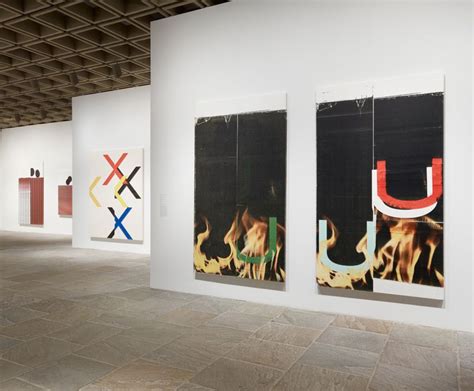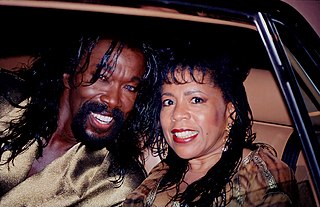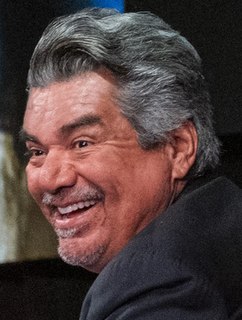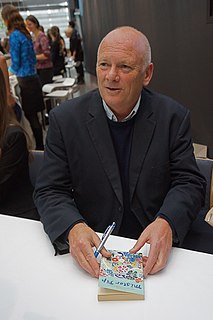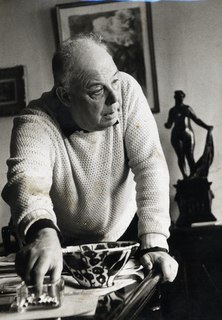A Quote by N. Scott Momaday
My father was a painter and he taught art. He once said to me, 'I never knew an Indian child who could not draw.'
Related Quotes
There was a whole language that I could never make function for myself; it revolved around words like 'tortured', 'struggle'. 'pain'.. .I could never see these qualities in paint - I could see them in life and art that illustrates life. But I could not see such conflicts in the materials and I knew that it had to be in the attitude of the painter.
The child in me could not die as it should have died, because according too legends it must find its father again. The old legends knew, perhaps, that in absence the father becomes glorified, deified, eroticized, and this outrage against God the Father has to be atoned for. The human father has to be confronted and recognized as human, as man who created a child and then, by his absence, left the child fatherless and then Godless.
You have been so careful of me that I never had a child's heart. You have trained me so well that I never dreamed a child's dream. You have dealt so wisely with me, Father ,from my cradle to this hour, that I never had a child's belief or a child's fear. Mr. Gradgrind was quite moved by his success, and by this testimony to it. " My dear Louisa," said he, you abundantly repay my care. Kiss me, my dear girl.
My father lifted me up in his strong gentle arms and said something I will never forget. He said, "I know you can do it. There is nothing that you can't do. We're going to climb that hill together even if it takes us all day." And at age 12 losing your leg pretty much seems like the end of the world. But as I climbed onto his back and we flew down the hill that day, I knew he was right. I knew I was going to be OK. You see, my father taught me that even our most profound losses are survivable. And it is what we do with that loss - our ability to transform it into a positive event.
I did read Indian scriptures when we could get the English versions, but the problem was I never took the time to learn the language. Really, what it comes down to is that I knew the emotion of faith; I knew what my parents were trying to teach me, but we always said 'No' when my mom was trying to teach us Punjabi.
Both my grandmothers had upright pianos, and I just knew how to play since I was a child. Nobody taught me. I sounded like a grown-up, and then I learned how to read music. I played so well by ear I could fool the teacher to believe I could play the notes. She'd make the mistake of playing the song once, and I could play it.
You know what I am going to say. I love you. What other men may mean when they use that expression, I cannot tell. What I mean is that I am under the influence of some tremendous attraction which I have resisted in vain, and which overmasters me. You could draw me to fire, you could draw me to water, you could draw me to the gallows, you could draw me to any death, you could draw me to anything I have most avoided, you could draw me to any exposure and disgrace. This and the confusion of my thoughts, so that I am fit for nothing, is what I mean by your being the ruin of me.
I remember standing on a street corner with the black painter Beauford Delaney down in the Village, waiting for the light to change, and he pointed down and said, 'Look.' I looked and all I saw was water. And he said, 'Look again,' which I did, and I saw oil on the water and the city reflected in the puddle. It was a great revelation to me. I can't explain it. He taught me how to see, and how to trust what I saw. Painters have often taught writers how to see. And once you've had that experience, you see differently.
I could have grabbed his shirt collar. I could have pulled him close to me, so close he could feel my breath on his skin, and I could have said to him, "This is just a crisis. A flash! A single match struck against the implacable darkness of time! You are the one who taught me to never give up. You taught me that new possibilities emerge for those who are prepared, for those who are ready. You have to believe!
If you're a father of a child who dies, it's an experience that never leaves you. It scars you forever and ever and ever. And so when I do any kind of story with somebody who's in the same position as my daughter was, there's no question that something comes out of me and embraces that story in a way that only a father who lost a child could.
I was eleven when my father left, so neither of us really knew our fathers. I’d met mine of course, but then I only knew my dad as a child knows a parent, as a sort of crude outline filled in with one or two colors. I’d never seen my father scared or cry. I’d never heard him admit to any wrongdoing. I have no idea what he dreamed of. And once I’d seen a smile pinned to one cheek and darkness to the other when my mum had yelled at him. Now he was gone, and I was left with just an impression—one of male warmth, big arms, and loud laughter.
To the question, ‘Is the cinema an art?’ my answer is, ‘what does it matter?’... You can make films or you can cultivate a garden. Both have as much claim to being called an art as a poem by Verlaine or a painting by Delacroix… Art is ‘making.’ The art of poetry is the art of making poetry. The art of love is the art of making love... My father never talked to me about art. He could not bear the word.


